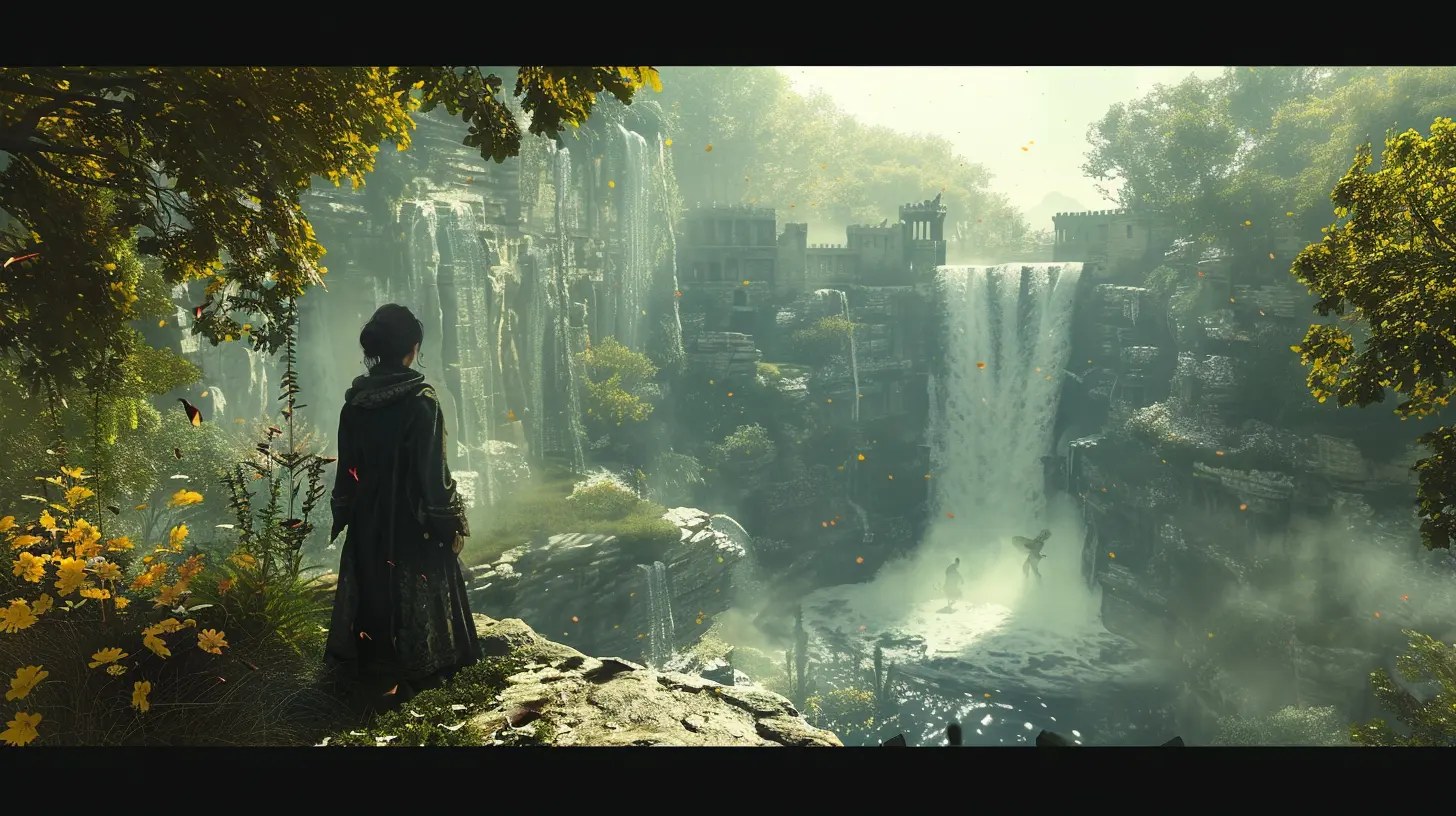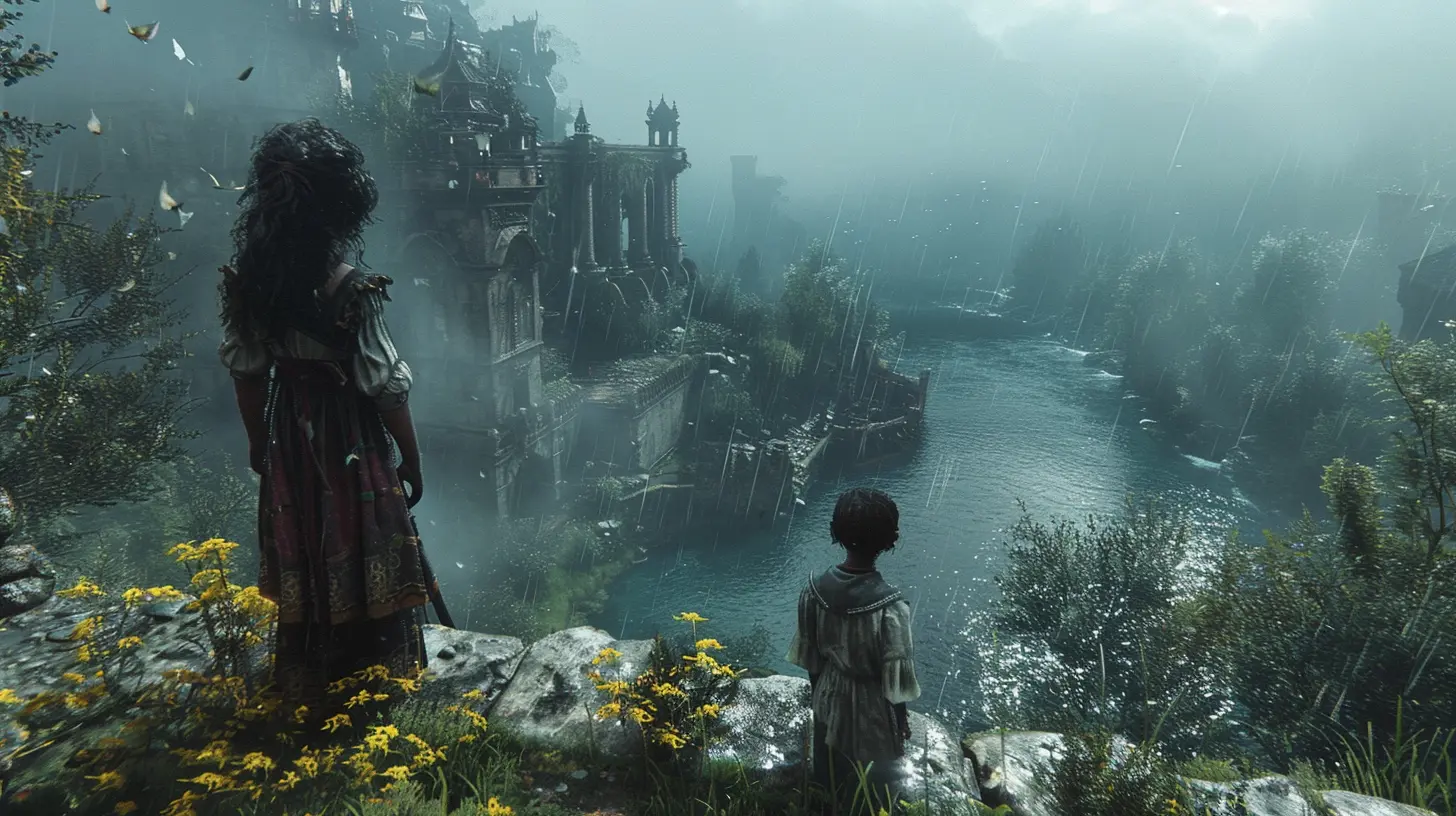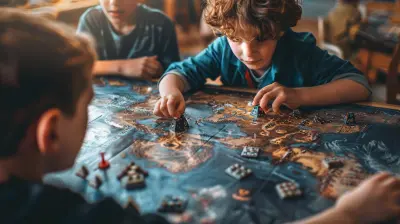How Emotional Depth Enhances the Interactive Narrative Experience
9 March 2025
Let’s be honest—there’s nothing quite like a game that tugs at your heartstrings. You know the type: the ones that leave you staring at the credits while clutching your controller, trying to process the emotional rollercoaster you just endured. It’s the difference between a game you play for a quick thrill and one that lingers with you for days, weeks…maybe even years. But what exactly makes these deeply emotional games stand out? How does emotional depth crank up the narrative experience in interactive gaming? Let’s chat about it.
Why Emotional Depth in Games is Such a Big Deal
Think about the last time a game genuinely moved you. Maybe it was the gut-punch betrayal in "The Last of Us Part II" or the bittersweet conclusion of "Life is Strange." Whatever it was, that heavy emotional moment wasn’t just accidental. It was crafted. Emotional depth in games works because it pulls us out of the "just a game" mindset and into something more immersive and meaningful.But why does this matter? Well, humans (yes, you and me) are emotional creatures by nature! We thrive on connection, and games that offer emotional depth give us just that—a connection to characters, to the world, and to the story. It’s like diving headfirst into a novel where you are the protagonist, decision-maker, and co-author all at once. 
Interactive Narratives: The Perfect Recipe for Emotional Depth
Here’s the thing: interactive narratives are a playground for emotional storytelling. Unlike traditional media like movies or books, games let you actively participate. Instead of passively watching a tragic hero, you get to be that tragic hero (yay?), making choices that ripple through the game.Think of it like steering a ship during a storm. You’re not just watching from the shore, you're in the thick of it, feeling every wave. When that storm is emotionally charged—like choosing a companion's fate in "Mass Effect" or piecing together your family’s dark past in "What Remains of Edith Finch"—the story hits differently.
Games let you feel the weight of your decisions. There’s no rewind button for mistakes, no "oops, let’s edit that paragraph." The result? You’re more invested because you’re not just along for the ride; you’re driving the dang vehicle.
Why Do We Care About Fictional Characters So Much?
Good question! Why do we sob into a pillow over a pixelated character? (Looking at you, Aerith from Final Fantasy VII.) The secret lies in how well these characters are written and fleshed out. When developers nail it, characters feel real—like your quirky best friend or a long-lost sibling.And when emotional depth is thrown into the mix, things get personal. Suddenly, it’s not just a story; it’s your story. You’re not just Luke Skywalker fighting Darth Vader; you’re you, struggling with decisions, allegiances, and heartbreaks.
Humans crave empathy, and games hand-deliver it on a silver platter. When a character opens up about their struggles, fears, or motivations, we can’t help but feel something—even if it’s just a pang of guilt for choosing the "evil" option in a morality system. 
Emotional Depth Is the Ultimate Plot Twister
You know what pairs well with emotional depth? Plot twists. And I’m not talking about the cheap "gotcha!" kind—the real jaw-droppers come when they’re tied to emotional stakes.Let’s break it down. A plot twist with zero emotional connection is like adding frosting to a rice cake—eh, it’s fine, but it doesn’t blow your mind. However, a twist layered with emotional depth? That’s like a molten lava cake: gooey, explosive, and oh-so-satisfying. Chef’s kiss.
For instance, if you’ve played Red Dead Redemption 2, you know Arthur Morgan’s journey is basically one emotional gut-punch after another. What makes those plot twists hit home is the emotional groundwork the game lays beforehand. By the time the big reveals roll around, you’re already knee-deep in feels, and suddenly, the plot twists aren't just shocking—they’re heartbreaking.
How Emotional Depth Elevates Player Choice
Player choice is a staple in interactive narratives, but emotional depth takes it to a whole new level.Take a game like Telltale’s The Walking Dead. Sure, you could argue that it’s "just a zombie game," but let’s be honest: no one’s crying over the zombies. You’re crying over Clementine because every decision you make shapes her story, her relationships, and her chances of survival.
When choices are tied to emotional stakes, you’re no longer picking between "Option A: Save the puppy" and "Option B: Feed the puppy to the villain." (What kind of monster are you, anyway?) Instead, you’re weighing the emotional consequences: will this choice protect those I care about? Will it haunt me later? And worst of all, will this choice make me less of a hero in my own eyes? Ugh, heavy stuff.
Emotionally Driven Gameplay: A More Memorable Experience
Think of emotional depth as the secret sauce that transforms an okay game into a masterpiece. Without it, interactive narratives can feel a bit hollow—a pretty shell with no substance inside. But when emotional depth is done right, it doesn’t just make the story stick; it elevates the gameplay itself.A quick example: Have you ever had to put down your controller mid-game to deal with a massive case of "the feels"? Yeah, me too. Games with emotional depth find ways to blend narrative and mechanics so seamlessly that one enhances the other. In Celeste, for instance, struggling through tough platforming sections mirrors the protagonist’s mental health battles. Every victory feels earned, not just by the character, but by you.
These games become more than just entertainment; they become personal milestones. You don’t just beat the game; you survive it, grow through it, and maybe even come out the other side a little wiser (or just emotionally wrecked—no judgment).
The Role of Music and Atmosphere in Emotional Depth
Alright, confession time: I’ve cried during a cutscene because of the music. No shame! A killer soundtrack can pierce through your emotional defenses faster than a plot twist ever could. ("To Zanarkand" from Final Fantasy X, I’m looking at you.)Music and atmosphere are like the emotional scaffolding of a game. They frame the narrative, guide your mood, and make every moment hit deeper. Subtle piano notes during a tender moment? Instant tears. A swelling orchestra during a pivotal battle? Goosebumps.
But it’s not just the music. Atmosphere matters, too. Think of Hollow Knight—its dark, lonely world feels alive thanks to its somber visuals, haunting score, and moments of quiet reflection. The atmosphere becomes a character in itself, amplifying every emotional beat of the story.
Why Emotional Depth Keeps Players Coming Back
You ever revisit a game, not because of the gameplay, but because of how it made you feel? That’s the magic of emotional storytelling. Games with emotional depth linger in our minds, like that one movie we can’t stop rewatching even though we know it’s going to make us cry (hello, Titanic).The connection we build with these games doesn’t fade after the credits roll. In fact, it grows stronger, like an old friend you fondly remember. Replayability isn’t just about unlocking achievements or testing new strategies; it’s about reliving that emotional journey and finding new layers in it.
Wrapping It All Up
At the end of the day, emotional depth is what makes interactive narratives so darn memorable. It’s the glue that binds us to the story, the characters, and even the gameplay itself. Whether it’s a heartwarming tale of friendship or a devastating spiral into despair, emotional depth gives games the power to connect with us on a human level—and honestly, that’s what makes gaming so special.So, the next time a game makes you laugh, cry, or launch your controller across the room in frustration, take a moment to appreciate the emotional rollercoaster you’ve been on. After all, isn’t that what art is all about?
all images in this post were generated using AI tools
Category:
Interactive StorytellingAuthor:

Stephanie Abbott
Discussion
rate this article
5 comments
Coral McFee
This article compellingly illustrates how emotional depth enriches interactive narratives, transforming player engagement from mere gameplay to profound connection. By weaving relatable themes and character arcs, developers elevate storytelling, prompting players to reflect on their own experiences. Such depth is crucial for the future of immersive gaming.
March 26, 2025 at 4:25 PM

Stephanie Abbott
Thank you for your insightful comment! I'm glad you found the article compelling—it’s true that emotional depth is key to creating meaningful connections in gaming.
Ronan Nguyen
Great read! It's amazing how emotional depth can turn gaming into a heartfelt journey. Here’s to more stories that tug at our heartstrings! 🎮❤️
March 22, 2025 at 4:31 PM

Stephanie Abbott
Thank you! I'm glad you found it meaningful. Here's to more games that resonate on such deep levels! 🎮❤️
Leah Cain
Who knew feelings could level up gaming? Next thing you know, we’ll be crying over pixelated characters like they’re our long-lost pets. Just remember, if Mario can save Princess Peach, we can conquer our emotional baggage—one boss battle at a time!
March 19, 2025 at 5:48 PM

Stephanie Abbott
Absolutely! Emotional depth elevates gaming by creating connections that resonate, making every victory and loss feel personal. It's all about turning pixels into heartfelt journeys!
Starling Dillon
Emotional depth transforms gaming into an immersive journey, allowing players to connect deeply with stories and characters. It’s incredible how emotions can elevate our experiences, making each moment unforgettable. Game on!
March 13, 2025 at 5:33 PM

Stephanie Abbott
Thank you! I completely agree—emotional depth truly enriches storytelling in games, creating meaningful connections and unforgettable experiences for players. Game on!
Zylith Ortiz
Who knew pixelated heartbreak could sting more than a Monday morning? Emotional depth in games: the real MVP of our virtual tears!
March 9, 2025 at 5:49 PM

Stephanie Abbott
Absolutely! Emotional depth in games creates a powerful connection, making our virtual experiences feel profoundly real and resonant. It’s amazing how pixelated stories can evoke such strong feelings!




